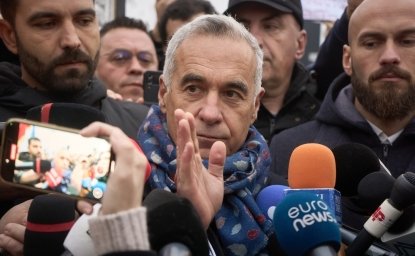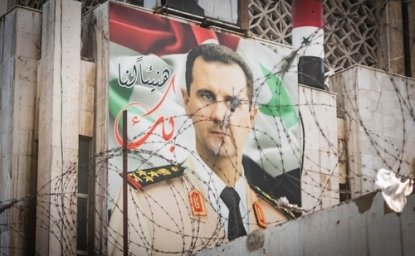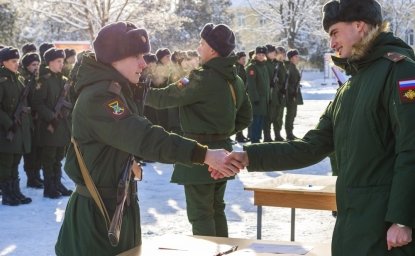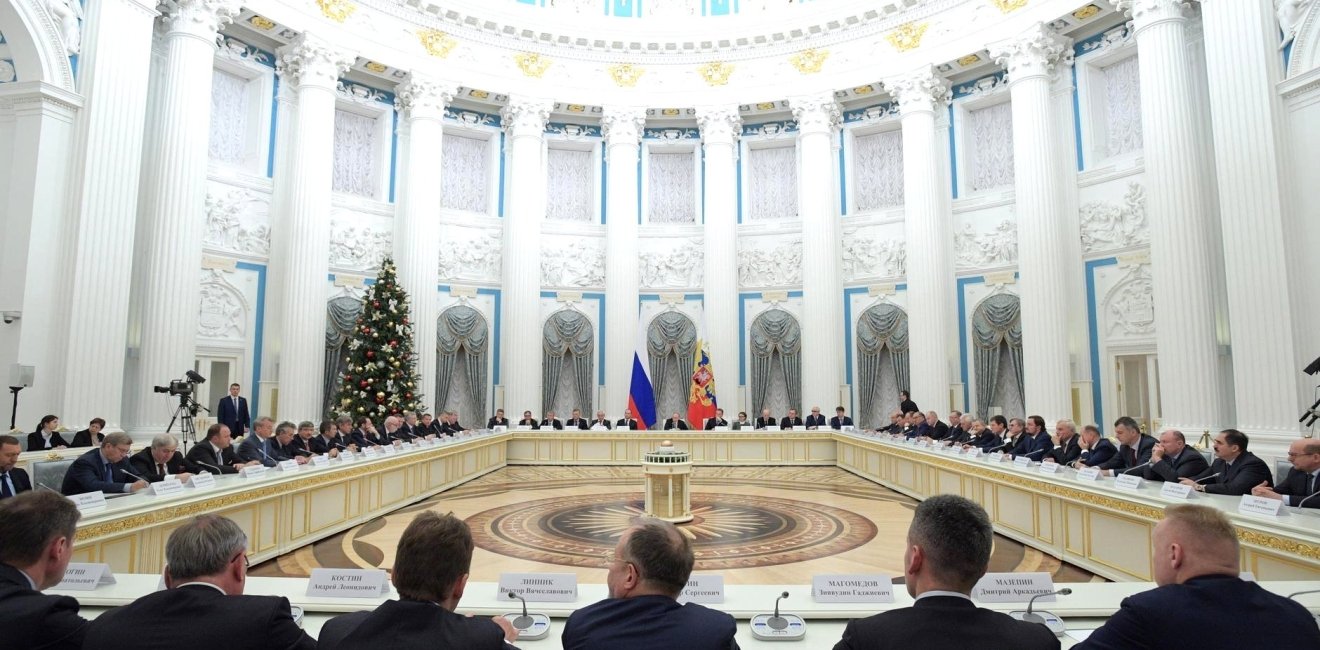
A blog of the Kennan Institute
BY MAXIM TRUDOLYUBOV
Yet another high-profile case has hit Russia's business community. Since Thursday another investigation has been under way whose true motivation seems much different from the monetary transgressions cited in the complaint.
According to the investigators, Sergey Petrov, the founder of Rolf, Russia’s largest car dealership franchise, transferred 4 billion rubles (about $63 million) in 2014 to an account outside Russia based on a false document. Petrov said in an interview it was a legitimate transaction that he could easily explain.
For a business with 230 billion rubles in annual earnings (in 2018; about $3.6 billion in today’s dollars), moreover, it was a relatively small transaction. The magazine Forbes estimates Petrov’s personal wealth at $900 million.
Petrov learned about the investigation and the searches of his company’s offices while in Vienna. “Of course, I am not going to return to where there is no defense or the possibility of clearing one’s name before an independent body. There is nowhere one can even ask a question and get an answer one could trust,” Petrov told RTVi television channel. Early on Friday, the Russian Investigative Committee detained Anatoly Kairo, head of Rolf’s business development.
Few observers believe the charges under Criminal Code Article 193, which bans currency transfers under false pretenses, are the real reason for targeting a businessman of Petrov’s caliber. Rolf is Russia’s largest car dealership network. In 2004 Petrov resigned as the company’s president and, between 2007 and 2016, served as an MP.
Petrov’s is a textbook success story. He has privatized no former Soviet assets, has never been involved in organized crime or been part of the security agencies. He is not among the big names of Moscow’s intelligentsia either. He has never served in government and thus has never had privileged access to money-making opportunities.
He was born in the former Cossack outpost of Orenburg, 900 miles southeast of Moscow, and graduated from a military aviation school in the early 1980s. In 1991, after running a small business subrenting other firms’ cars in Moscow, he started his car dealership with zero capital and some Mitsubishi Lancer cars lent to him by sympathetic Japanese entrepreneurs.
He managed to navigate the treacherous waters of Russia’s no-holds-barred capitalism not by destroying others but by building a company with a Japanese-inspired business culture. His first breakthrough came with selling mid-range Mitsubishis, but he went on to become Russia’s largest dealer for brands as diverse as Alfa Romeo, BMW, Jaguar, Jeep, Land Rover, and Skoda. Nor has he been a businessman focused single-mindedly on earnings and profits.
“I think our country had a chance back then [after the collapse of the Soviet Union] to clean itself up and build a better society,” Petrov wrote in an autobiography that in 2018 was excerpted in Forbes Russia. “I wanted to make my contribution by creating a company whose well-being would depend on outstanding management. I wanted to build a company that would thrive for decades.”
Petrov has never tried to pretend to be someone he is not. He openly admitted that A Just Russia, the social-democratic-leaning, generally pro-Kremlin party on whose ticket he ran, was not really his cup of tea. No party was independent enough for him or had a program he could associate himself with, but being a Duma deputy gave him an important public platform. He was one of a handful of MPs who maintained an independent stance. He wrote inquiries prompted by the investigations of the anti-corruption crusader Alexey Navalny. He opposed many Kremlin-led initiatives, including the Dima Yakovlev Act, which banned U.S. citizens from adopting children from Russia. The law was passed in 2012 as a response to the Magnitsky Act enacted in the United States.
Potential reasons for the Kremlin to be angry with Petrov are so abundant no one doubts his case is informed by politics. It might also be an attempted raid or a combination of the two, Petrov himself suggested in a number of interviews. Some have found the legal vehicle used against Petrov puzzling. If the authorities wanted to build the case that Petrov was illegally funneling money abroad, the transaction they decided to showcase was a poor choice because that is not how businesses transfer money abroad, a Russian financier explained.
Petrov is at least the sixth high-profile business figure to be targeted by Russia’s security agencies this year. Others on the list are the American investor Michael Calvey, the businessman and former head of Russia’s Open Government initiative, Mikhail Abyzov, the co-founder of Wimm-Bill-Dann Foods David Yakobashvili, and three others.
Most commentators are hesitant to call this a coordinated attack on business as such. Some cases might be motivated by greed, but politics is seen as the overarching motive. One common thread in all of the cases is their high-profile nature. There is a near universal agreement that all those prosecutions could not have happened without an okay from the very top. Specific reasons are unclear, but the targeted individuals’ lack of loyalty to President Putin and his immediate circle is seen as the chief and most probable motive.
If this chain of events indeed forms a chain, it must be connected to Putin’s falling approval ratings and the Kremlin’s general insecurity, fueled by the upcoming September regional elections, which will include St. Petersburg. The one big political event of the future that is already casting a dark cloud over Russia’s politics is the 2024 presidential election. Any actor with an independent outlook and money to spare may thus be seen as dangerous.
I won’t go into all the conspiracy theories that are circulating in Moscow these days. Wild interpretations flourish, but I have yet to find a single independent observer who can say with confidence that the allegations put forth by the authorities are the actual foundation for the arrests. The use of the law enforcement system to settle political or economic scores is so well established that no one expects it to be otherwise.
Each new story creates a swirl of frantic guesswork. Each new story is a reminder of the fundamental insecurity that underlies the existence of Russia’s most powerful people, both in business and in politics. If some of those cases are motivated by the Kremlin’s desire to avert a future crisis, all those investigations are actually doing is bringing the day of crisis closer.
Author

Editor-at-Large, Meduza

Kennan Institute
The Kennan Institute is the premier US center for advanced research on Eurasia and the oldest and largest regional program at the Woodrow Wilson International Center for Scholars. The Kennan Institute is committed to improving American understanding of Russia, Ukraine, Central Asia, the South Caucasus, and the surrounding region though research and exchange. Read more

Explore More in The Russia File
Browse The Russia File
In Search of Russia’s Digital Trace in Romania’s Political Crisis

With Syria’s Collapse Russia’s Regional Power Play Disintegrates

Putin's Strategy Tests Europe's Defense Limits

